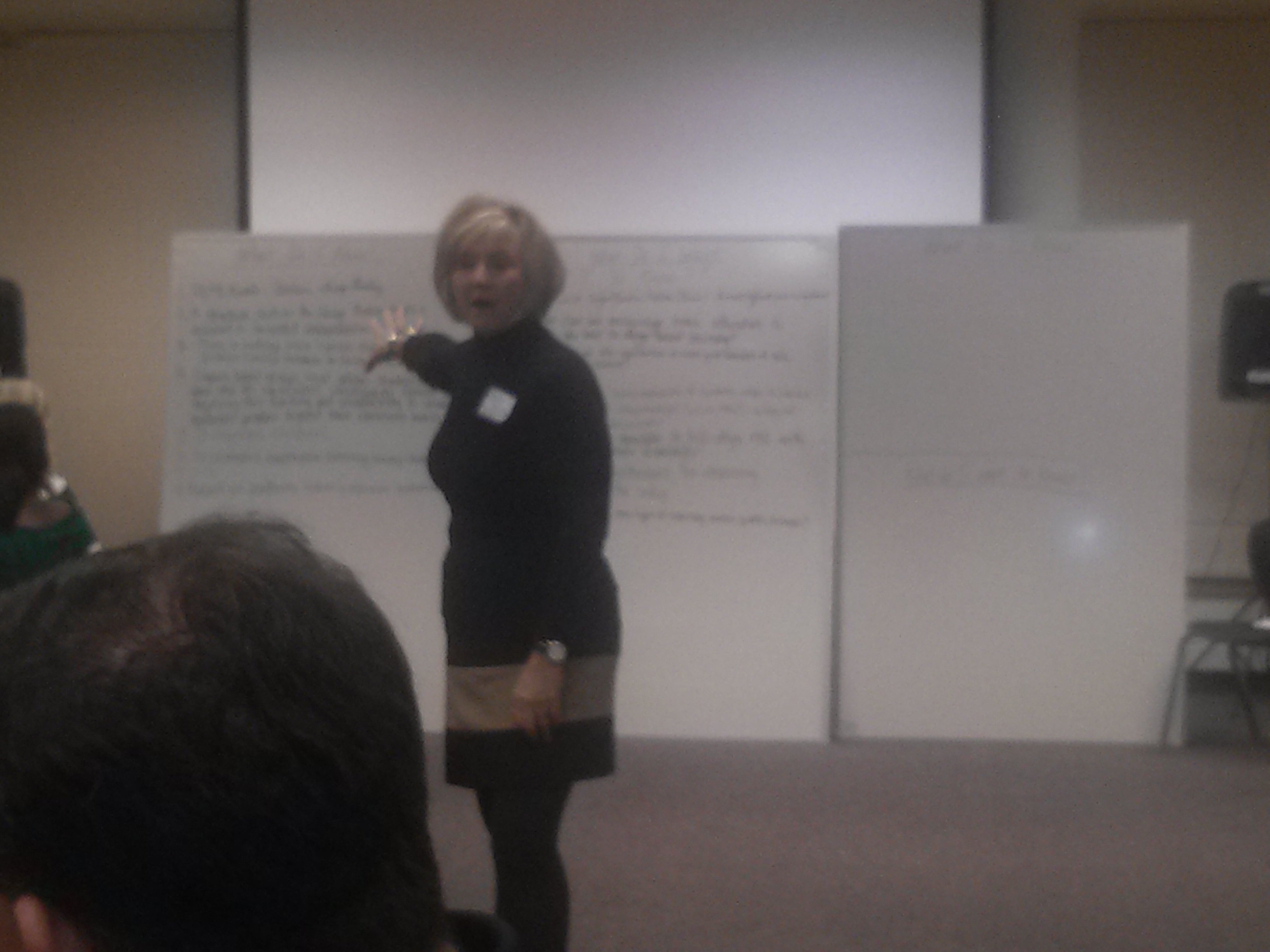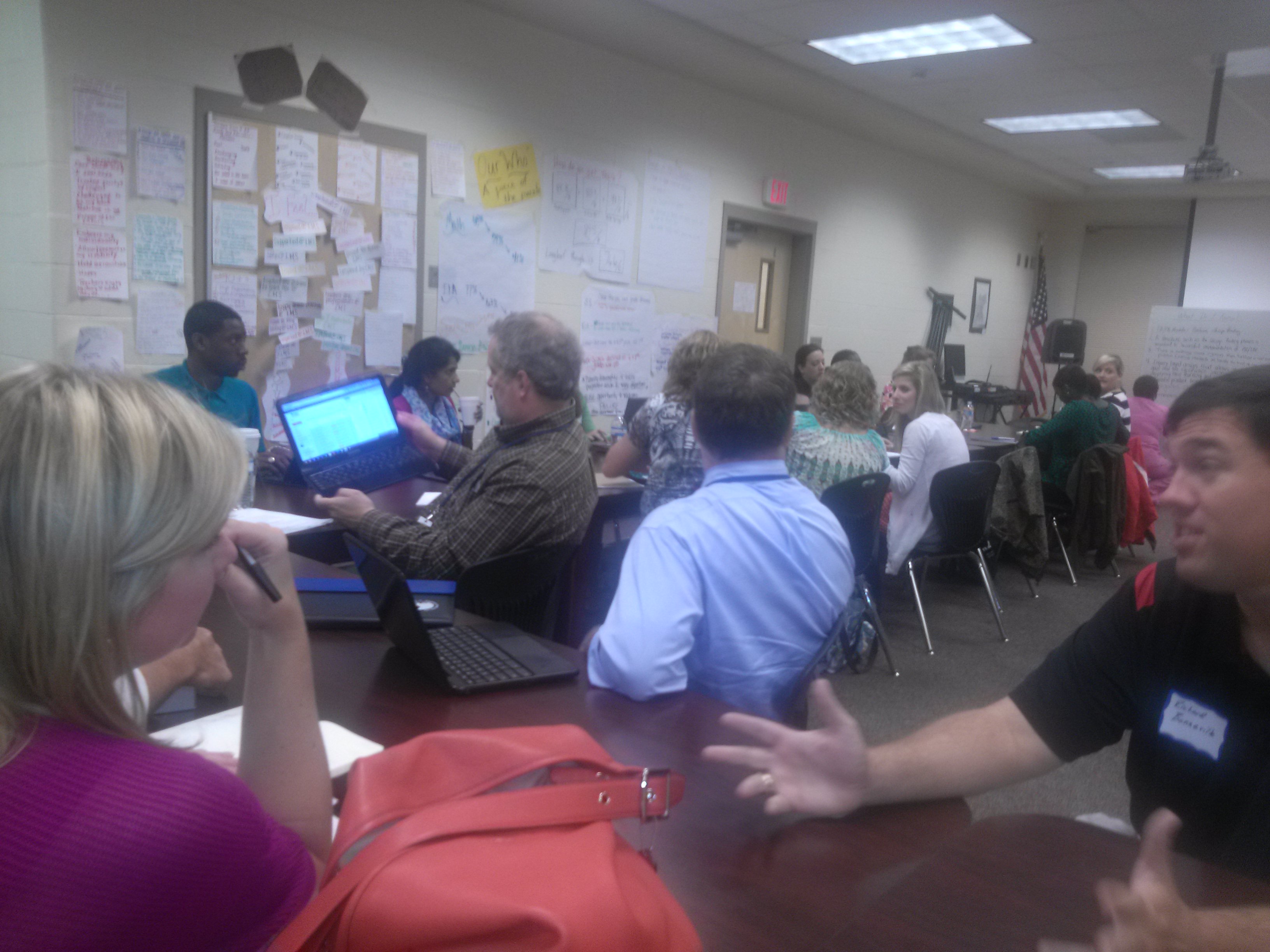Over the past year, in my work with ASCD affiliates, we have been exploring ways to revolutionize the ways we serve their affiliate members. Why? The writing is on the wall that today’s educators have different needs and expectations. It’s difficult to get out of the classroom to attend conferences, and when educators can get away for professional development they want to be actively engaged in acquiring meaning and building understanding. One concept I have asked affiliates to explore is the deconstruction of conferences, workshops and seminars into a newly emerging kind of professional development: the unconference.
Why unconference? It’s a back-to-basics movement…a new minimalism…wherein the participants define the learning and then contribute to its success. There are no keynote speakers, no concurrent sessions and no matrix schedules. They can be held anywhere you can find conducive free space so there is literally no overhead costs. And the payoff is that those who attend get to connect, learn and network for follow-up discussions after the event is over. Sounds intriguing…but scary! As one affiliate board member remarked to me at their summer retreat: “No headliners? No identified agenda? No pre-registration? What if nobody comes?!”
“Take a chance!” I replied. “If nobody comes then…nobody will know it flopped!” The room laughed nervously. But the truth is to make revolutionary changes in how we serve educators, we need to take risks. Every affiliate I have discussed unconferencing with has been fascinated with the idea. It makes sense to them…especially as they consider the needs of educators under 40. They’re not joiners. They don’t want to sit and be talked at. They want opportunities to apply themselves and be leaders among their peers. They need places where they can make that happen. What we need are some early adopters…
 We do have a number of affiliates seriously planning their first foray into unconferencing. This past week I attended the first of a series of unconferences to be held by South Carolina ASCD on Project-Based Learning (PBL) at a middle school in Columbia, SC. Executive Director Charlene Herring invited me because of my recent book IQuest and so I could provide an additional layer of support as her team began this new PD experiment.
We do have a number of affiliates seriously planning their first foray into unconferencing. This past week I attended the first of a series of unconferences to be held by South Carolina ASCD on Project-Based Learning (PBL) at a middle school in Columbia, SC. Executive Director Charlene Herring invited me because of my recent book IQuest and so I could provide an additional layer of support as her team began this new PD experiment.
Because there was no published schedule or agenda, only an open-ended theme, the SC ASCD team had no idea who would actually show up or what would happen when they did. As educators rolled in, they slapped on a self-signed nametag and went to one of three whiteboards at the front of the room and wrote what they knew about PBL and what they were seeking to learn at the unconference. There were few solo attendees…most educators came in teams of two-to-six people…and they sat in their teams wherever they found seats. What struck me most? Of the 40 people who came to participate, more than thirty of them were young educators. The over-forty attendees were administrators who brought their young teams to contribute and learn. And the teams did not stay in teams for long. People were quickly talking across teams to share and learn and exchange contact information. It was purposeful and powerful in how it took on a life of its own.
 Several teams emerged as having experience and expertise that everyone else in attendance wanted to hear about. There were elementary people picking the brains of secondary people and vice-versa. At some points people met in quickly-forming groups to discuss PBL planning or implementation or assessment concerns. Then the room would shift as groups of educators sought to discuss ideas by grade level. By the time it was over, SC ASCD’s first unconference was a high-energy success with everyone parting full of ideas and strategies and new contacts with whom they could continue the conversation. The entire event lasted three hours and didn’t cost anyone a penny. It was relevant engaging and satisfying for everyone involved.
Several teams emerged as having experience and expertise that everyone else in attendance wanted to hear about. There were elementary people picking the brains of secondary people and vice-versa. At some points people met in quickly-forming groups to discuss PBL planning or implementation or assessment concerns. Then the room would shift as groups of educators sought to discuss ideas by grade level. By the time it was over, SC ASCD’s first unconference was a high-energy success with everyone parting full of ideas and strategies and new contacts with whom they could continue the conversation. The entire event lasted three hours and didn’t cost anyone a penny. It was relevant engaging and satisfying for everyone involved.
Could it be more than 40 attendees? Absolutely. But it was a great turnout for a first-time event with no defined parameters. More importantly, it was a big step for an ASCD affiliate offering a new kind of professional development to its membership. Yes, edcamps and unconferences are already tried-and-true PD formats in ed tech circles, but ed tech educators are typically early adopters and innovators by trade. I am very proud of our ASCD affiliates serving as innovators in their own right. We can build on our successes and learn from our efforts. The point is, ASCD and its affiliates are committed to remaining relevant partners to educators, providing rich resources and rewarding experiences that make a difference in their work. Thank you to the SC ASCD team and its members who partook in last week’s PBL unconference. And here’s to more ground-breaking innovation for our affiliates in the months to come!






No comments:
Post a Comment